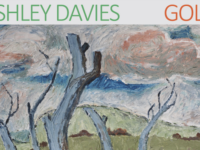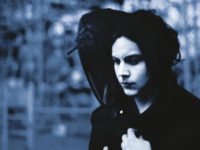Jack Henderson recorded Where’s the Revolution in his native Glasgow, but the record oozes with Americana roots rock that drinks a strong chaser of acoustic soul-strutted street cred. As my friend Kilda Defnut often says, “Move over Elvis Costello and tell Bruce Springsteen the news.”
Of course, I can counter with: “Move over Joe Henry and tell Willie (Mink) DeVille the other news.” And then add the Band’s Richard Manuel’s Big Pink words that say, “It’s the same old riddle, only starts from the middle.”
And that’s exactly what this album somehow manages to (brilliantly) do.
“Jesus and Jezebel” is an Elvis Costello-worthy melodic tune that, in a very folk manner, is a clarion call to choose wisely and avoid “gossip and opinions” on “real TV” and “Snapchat romance and instant affairs” – which, of course, in true folksinger fashion, is “a kind of suicide.”
As said, it’s “the same old riddle” — the unexplained stupidity of eager worship — which is juxtaposed to Henry David Thoreau famously wrote, “If a man does not keep pace with his companions, perhaps it is because he hears a different drummer.”
Jack Henderson’s Where’s the Revolution is about that stuff. Or, as (the great) Roy Harper scribed in the liner notes to his Lifemask record, “People eat crap, watch crap, breathe crap, and listen to crap.” This album is about that stuff, too.
There’s more tough lyricism. “Different Girl” begins with a vocal that recalls the Beatles during their early years. But the lyrics continue to pull the Band-Aid off a wounded romantic memory, as Jack Henderson sings: “Even the truth is absurd / Life is a beautiful curse.” (Perhaps, she’s distant cousin to Costello’s “Alison“!) That said, she is the weird duality of good and evil, and continues with the themed paradox of “Jesus and Jezebel.”
And the title tune, “Where’s the Revolution,” sings about being sick of “these clockwork clowns and their silly little paper crowns.” Yet, in true Sir Raymond Douglas Davies fashion, Henderson sings (with Muswell Hillbillies pathos) about the plight of the “Twentieth Century Man” who, besides not wanting to “be here,” is left (and cast adrift) with a “prophet without a horse” and “savior that was blown off course.” But, in all fairness, it’s always nice to hear the word “psychosis” in a pretty great rock tune.
And “Hey Batman” deposes of imaginary heroes. (Oh my!) “Robin has run away from home.” (Oh my, again!) Innocence will always be lost, just every sheep must eventually be sheared. Sometimes, even in comic-book America, idols can still have biblical clay feet.
“Stars” is a beautiful respite with a reminder that, as Carl Sagan once said, “even through your darkest day, remember we are made of stardust.” That’s always a nice thought. And I think Joni Mitchell (sort of) said the very same thing.
Then, there are three quiet tunes. “Next Time I Meet You” is a piano-acoustic guitar “worn down weary” tune that begs for blood from a dying romantic stone. “Nobody Gets Hurt” is yet another sad song that rinses some hope out a broken love. And there’s a chorus worthy of John Lennon’s “Watching the Wheels.” Then more acoustics usher in “Like We Never Do,” which slowly walks in the very same dark protest line as Lennon’s “Working Class Hero.” Yeah, the guy in the song committed suicide, just like, as the song says (with perhaps an ironic glance) “we never do.” And the song ends with a postmortem instrumental bit with simpatico sax and choral voices.
Now, the penultimate tune, “Don’t Drink the Water” is the big source of gravity around which all the other songs revolve. The song conjures Bob Dylan, and although there is no “blood on the tracks,” there “is blood in the river,” so as the song warns, “don’t drink the water.”
This tune haunts with its symbolism and spectral electric-guitar footprint that says “spin me a riddle/straight as you can,” which again portrays a “mixed up, muddled up, shook up world” (thank you once more, Ray Davies!) where the “perfect deceptions always rhyme with the truth.” And a “temple” and “shrine” are built, while “lambs are slaughtered” and “the horses are butchered.” It’s Midas all over again: The guy who only cared about gold — who now can only drink from the fount of his own bloody greed. This is tough stuff.
But there is an eerie piano-graced resolution: The “Stars” are still there. But we also have the rain—and the weary wisdom that ‘It’s only rain / Nothing we haven’t seen before.” And “every broken heart goes on beating.”
Yes, indeed, as (the great) Richard Manuel sang, “It’s the same old riddle,” and we, like Oedipus always get caught in its web. Remember that the Who proclaimed, “You’ve been told many times before / Messiahs pointed to the door / But no one had the guts to leave the temple.” Well, Jack Henderson’s Where’s the Revolution has ample “guts,” and thankfully, it sings with melodies strong enough to ferry all these fervid words, with a warm and passionate passage, safely across any turbulent river in these tough times.
- Nektar – ‘Journey to the Other Side: Live at the Dunellen Theater’ (2024) - April 8, 2024
- Emerson Lake and Powell – ‘The Complete Collection’ (2024) - February 23, 2024
- Madlen Keys – ‘Event Horizon’ (2023) - December 15, 2023




